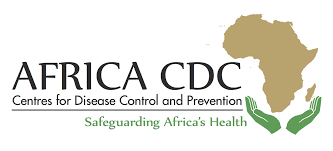By Health Correspondent
Central African countries meeting last week on Thursday and Friday operationalised the Africa Centres for Disease Control and Prevention’s (Africa CDC) Regional Collaborating Centre (RCC). The centre will coordinate the efforts of Burundi, Cameroon, Congo, Gabon, Equatorial Guinea, Central African Republic, Democratic Republic of Congo, Sao Tomé and Principe and Chad to jointly strengthen surveillance, emergency response and prevention of infectious and non-communicable diseases. The Central Africa sub-region has witnessed several disease outbreaks including Ebola, Cholera and Hepatitis in addition to a high burden of malaria, HIV, tuberculosis, vaccine-preventable diseases and neglected tropical diseases.
“The recent African Heads of State and Government declaration, committing to accelerate the implementation of International Health Regulations, demonstrate the resolve of African countries to strengthen public health systems and core capacities critical to address the health security of the continent. Health security is a solid foundation for the socio-economic and structural transformation of the continent” said Dr. John Nkengasong, the Director of the Africa Centres of Disease Control and Prevention, “Regional Collaborating Centres will translate these bold commitments to concrete action by using all public assets that exist in the sub-region to effectively network and sustain collaboration for disease control. A disease threat anywhere in Africa is a threat everywhere on the continent” added Nkengasong.
Disease outbreaks are increasing globally due to environmental degradation, climate change, population growth and increased cross-border movements. The Declaration to accelerate the implementation of International Health Regulations together with the Africa Health Strategy (2016-2030) and the Africa Agenda 2063 – the Africa we want, provide a unique opportunity for a new public health order in Africa to safeguard the health security of the continent.
‘Emerging and recurrent diseases threaten the collective efforts to transform our region. The Regional Collaborating Centre provides an opportunity for effective collaboration, integration and coordination of epidemiological surveillance, strengthening existing networks of quality laboratories for early detection and response. We cannot deliver effectively if we do not implement a one health approach bringing human, animal and environmental health together to better manage risks’ said Hon. Blaise Louembe, Minister of Equal Opportunities for Gabon.
The Central Africa RCC will work to harness the public health assets that already exist in the sub-region including the World Health Organisation, universities, national public health institutes, private laboratories, centres of excellence, non-governmental organisations and veterinary networks. The Africa CDC Regional Collaborating Centres will work closely with the Africa CDC secretariat in Addis Ababa, the Africa CDC Antimicrobial Resistance Surveillance Network and the Regional Integrated Surveillance and Laboratory Networks. Together these structures will develop the adequate capacity needed to support surveillance, laboratory systems and networks, emergency preparedness and response, capacity development and public health research in Member States and prevent and fight effectively against communicable diseases, non-communicable diseases and major public health outbreaks.
Gabon have taken key steps to fully operationalise the Centre including providing a four storey building for office space and emergency operation centre, infrastructure, and human resources. Gabon also harbours a biosafety four and several biosafety three laboratories that will provide strong support to the regional centre to effectively respond to outbreaks.






